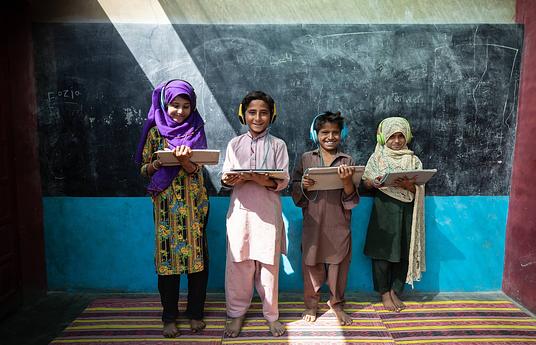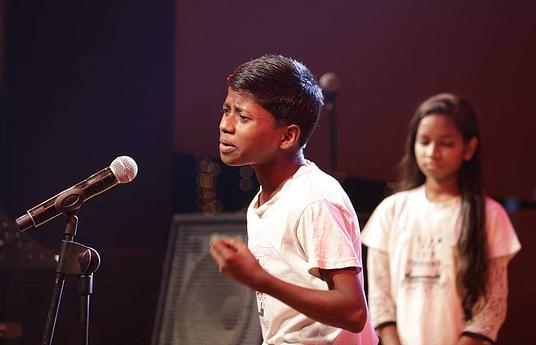>50% of children complete school without achieving foundational learning levels; the largest share in South Asia. Our alliance addresses a lack of available, accessible information on learning that leads to low levels of citizen awareness and limited ability to analyse, advocate and act on information amongst communities and civil society organisations - crucial to confronting the learning crisis.
Absence of information on learning levels results from complex, convoluted assessments that are challenging to understand and use. Our innovation involves (i) creating a simple, scalable suite of assessments; (ii) a citizen-led approach to administering assessments; and (iii) investing in increasing the capacities of citizens and civil society organisations to analyse, advocate and act on the assessments – to inform more efficient, equitable interventions for vulnerable children.
Our innovation assures accurate, credible and comparable information on learning levels that (i) creates a common language on learning for children, caregivers and communities; (ii) catalyses communication and collaboration; and (iii) accelerates accountability between citizens, civil society organisations and the state. Studies show that this innovation has issued intensified calls for improvement and had measurable impact on increasing accountability for learning in South Asia [see https://bit.ly/30kSzfG].
The South Asian Assessment Alliance is a coalition of organisations involving, and inspired by, the initial successes of the 2005 to 2020 Annual Status of Education Reports in India and Pakistan. The alliance has adapted these simple, one-to-one assessments administered by citizens and civil society organisations for 100000+ children in Afghanistan, Bangladesh, Myanmar and Nepal, informing targeted interventions to improve learning [ACER 2021].
In 2021, the alliance crafted and calibrated assessments across languages and learning levels to create the only common, comparable assessments across South Asia. From 2022 to 2025, the alliance is seeking to scale these assessments across eight countries in an effort to initiate and inform coordinated, collective action for learning in South Asia.
An open-source, online portal offers a platform for our problem-solving collaboration. It provides training to citizens, civil society organisations and states interested in adopting our approach, allowing them to create, conduct, and analyse assessments independent of assistance, and assuring clarity on the compelling needs of vulnerable children - to inform advocacy and accountability agendas.



